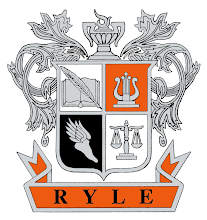Jan 17, 2011 by Anna Ambartsumyan on Suite101.com
Facebook is a hit in numerous countries, no doubt. But, people should be wary of what they post online. Facebook is more public than one may think.
What does one do in the morning, except taking shower and having breakfast, on a weekend, for example? Yes, he or she checks e-mails and, of course, visits Facebook page. Most of people do it as a part of their morning and even daily ritual.
The Facebook Phenomenon
This social network has displaced other social networks, becoming the leader around the world. Facebook has become an important part of many people's life. One sends gift to his or her friend's birthday for only a dollar, another - shares his or her status line with friends or everyone.
Can one imagine that more than two years ago it was available in English only. It was launched in February 2004 and founded by Mark Zuckerberg with his college roommates. Nowadays this popular social network has more than 600 million active users.
Facebook Login and Its Hidden Dangers
According to security research firm Sophos, 700,000 Facebook users join Facebook every day. The report from Sophos states that 93% of users would prefer Facebook's privacy options to be opt-in rather than opt-out. Sophos studies have also found that Facebook users:
•46% - accepted friend requests from unknown people, strangers
•89% (in their 20s) - disclosed their full birthday
•about 100% - post their email address
•between 30-40% - list data about their family and friends
Sophos also says that Facebook is a threat to online security. The security research firm warns that people should be wary of what information they post on any social networking site.
Yet Facebook has provided a wide variety of privacy options, it's a still public place. What dangers may one wait from Facebook?:
•There have been paedophiles and killers like Peter Chapman, 33, in the UK - he used fake Facebook profile to lure Ashleigh Hall, 17-year-old student. Later he admitted kidnapping, raping and murdering a teenage student he had ensnared using a fake profile on Facebook.
•There are thieves who robbed homes based on Facebook or other social networking sites. Users didn't keep vacation plans private and posted online that they would not be at home on specific days.
•Facebook is under constant attack from different hackers, who try spamming millions users or collect their data, etc.
•One's information is being shared with third parties. Let's say one plays some quizzes or games such as Farmville, Petville, Mafia Wars on Facebook. He or she does not realize that every time one plays it, he or she authorizes an application to be downloaded to his or her profile, thus giving information to third parties.
•Researchers at VeriSign's iDefense have discovered that a hacker was trying to sell 1.5 million stolen Facebook usernames and passwords on an underground market for between $25-$45. (VeriSign is an American company which provides a variety of security services; the VeriSign's seal is the most recognized symbol of trust on the Internet).
•Friends in one's network can make one defenceless. How? If one's friend has a weak password, for example, and his or her profile was hacked, then - he or she could send malware.
•Potential employers or recruitment agencies have been known for using Facebook and collecting personal information on candidates.
So, how to be careful on Facebook? First of all, it is recommended to control the privacy settings on one's Facebook account. One can decide what he or she wants to share and what doesn't.
Experts advise to pop onto Facebook once a week. Also, upload not so many pictures - one or two, for example, and turn off one 'chat' function. The fact is that some Facebook active users found their private chats accessible to everyone on their contact list.
Sources
Facebook: The privacy challenge. Sophos.com, January 17, 2011.
Kirllos and the 1.5 Million Stoles Accounts by Ron Howard. Blogs.Verisign.com, May 4, 2010.
Read more at Suite101: Facebook: The Dangers of Social Networking http://www.suite101.com/content/facebook-login-the-dangers-of-social-networking-a259995#ixzz1BnULOQTu
Smaller Classes: Mamdani Does the Math
-
The mayor would need $700 million for teachers to reduce class sizes in
line with a state mandate.
18 hours ago















No comments:
Post a Comment